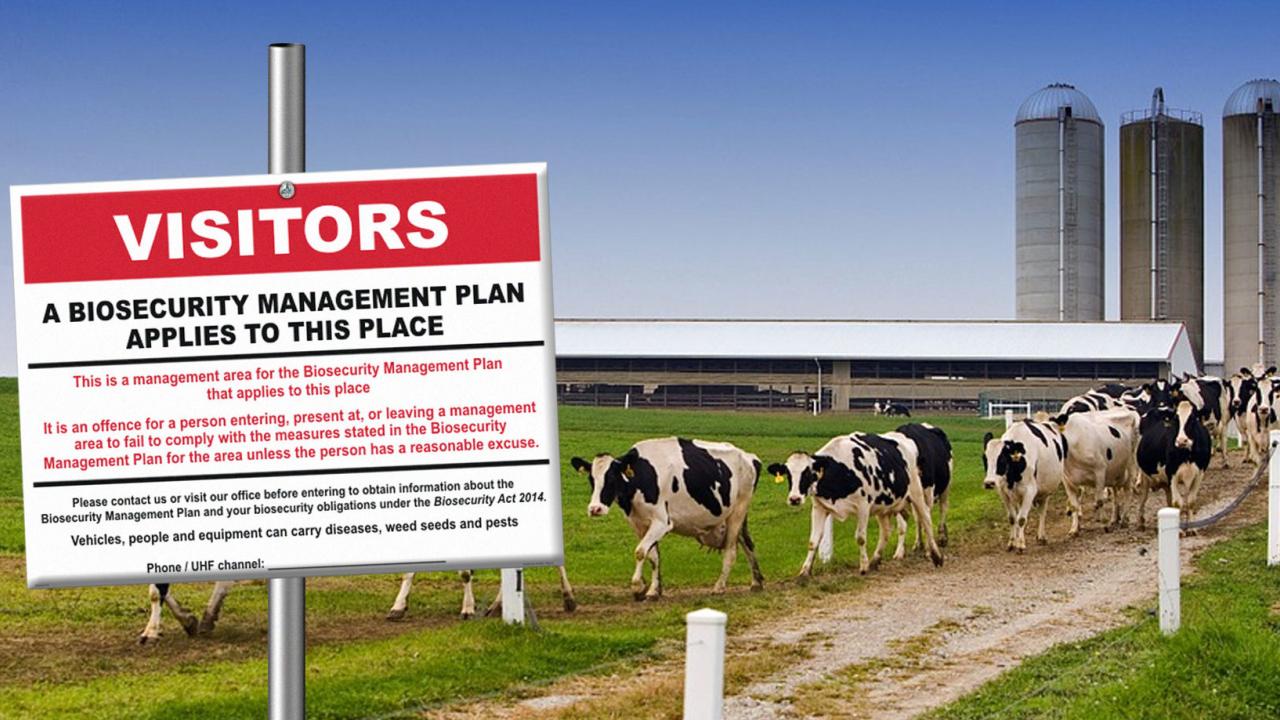
Livestock Have Pandemics Too
by Mike Payne, Western Institute for Food Safety and Security
Historically, animal health officials in the western states responding to invasive foreign animal diseases (FAD) such as high-pathogenic avian influenza (HPAI) and virulent Newcastle disease (vND) have reported that disease control efforts are significantly hampered by industry’s lack of preparation. Specifically, animal and poultry rearing and processing operations cannot support regulatory goals because they simply can’t quickly implement enhanced biosecurity plans and cooperate in monitoring and reporting programs.
To help address this problem the Western Institute for Food Safety and Security (WIFSS) at UC Davis has been awarded a $560k grant from the USDA National Animal Disease Preparedness and Response Program (NADPRP) to develop a collaborative partnership between the university, federal agencies, state agencies, and animal agriculture industry to increase preparedness on dairy farms and poultry raising facilities.
The collaborative partnership will include state regulatory and industry representatives from California, Oregon, and Arizona and will be conducted under the leadership of Bennie Osburn (PI) and Michael Payne. The instructional design staff and faculty at WIFSS will also coordinate the multidisciplinary partnerships from both the dairy and poultry industries to work collaboratively on the development of enhanced biosecurity plans that can be implemented in response to catastrophic outbreaks of foreign animal diseases.
This project will demonstrate that a combination of novel on-line tools and in-person training can effectively empower industry representatives to assist poultry and dairy producers in making FAD preparations, particularly completion of Secure Food Supply (SFS) response plans. Co-training of state, federal, academic and industry stakeholders will build alliances and allow industry representatives to act as a “force multiplier”, dramatically improving industry preparedness and amplifying regulatory response. State animal health officials from Oregon and Arizona will participate in development of virtual and in-person training tools and evaluate their suitability for application in their home states.
This project is designed around three objectives:
-
- Complete a Comprehensive Needs Assessment – The WIFSS staff will develop a survey to ascertain perceived regulatory/industry FAD response knowledge gaps and training needs. The survey will distribute the survey widely through both regulatory, industry, academic and veterinary communities in the western states, comparing the results with relevant After Action Reviews of actual FAD events. Finally, WIFSS will collect, organize and summarize existing Just-In-Time (JIT) learning tools (videos, infographics, checklists, Standard Operating Procedures (SOPs) etc.) for later inclusion in on-line and in-person training.
- Create a Novel Biosecurity Online Learning Center – Using the survey results and applying on-line and adult-learning theory, WIFSS will develop a single, user-friendly, interactive website guiding farmers through the construction of an enhanced biosecurity plan for a dairy or poultry facility. Existing learning resources previously identified will be included in a library of resources and cross-linked throughout the biosecurity plan builder tool. These supplemental resources will include examples of completed plans templates, facility map construction tools, Just-in-Time instructional videos and templates for Standard Operating Procedures. On-line plan building tools, website library and the Train-The-Trainer workshop curriculum will remain an “evergreen” resource for future industry efforts, especially as they are launched in specific states.
- Deliver Demonstration Day and Train-The-Trainer Workshops – Efforts will culminate with a total of four live workshops exercises in California. Based on a previously successful pilot, dairy and poultry demonstration workshops will allow local and federal VMOs to explain to stakeholders the state’s FAD response and how industry can partner to create enhanced biosecurity plans. Workshops conclude with live demonstrations of enhanced biosecurity plans staged at working farms. All presentations will be recorded for inclusion on the online learning center. The demonstration workshops will be followed by “Train-The-Trainer” events where industry representatives will learn how to assist producers in creating customized enhanced biosecurity plans for their facilities. The grant will provide for participation of state animal health officials from Oregon and Arizona to evaluate the methods for application in their home states.
